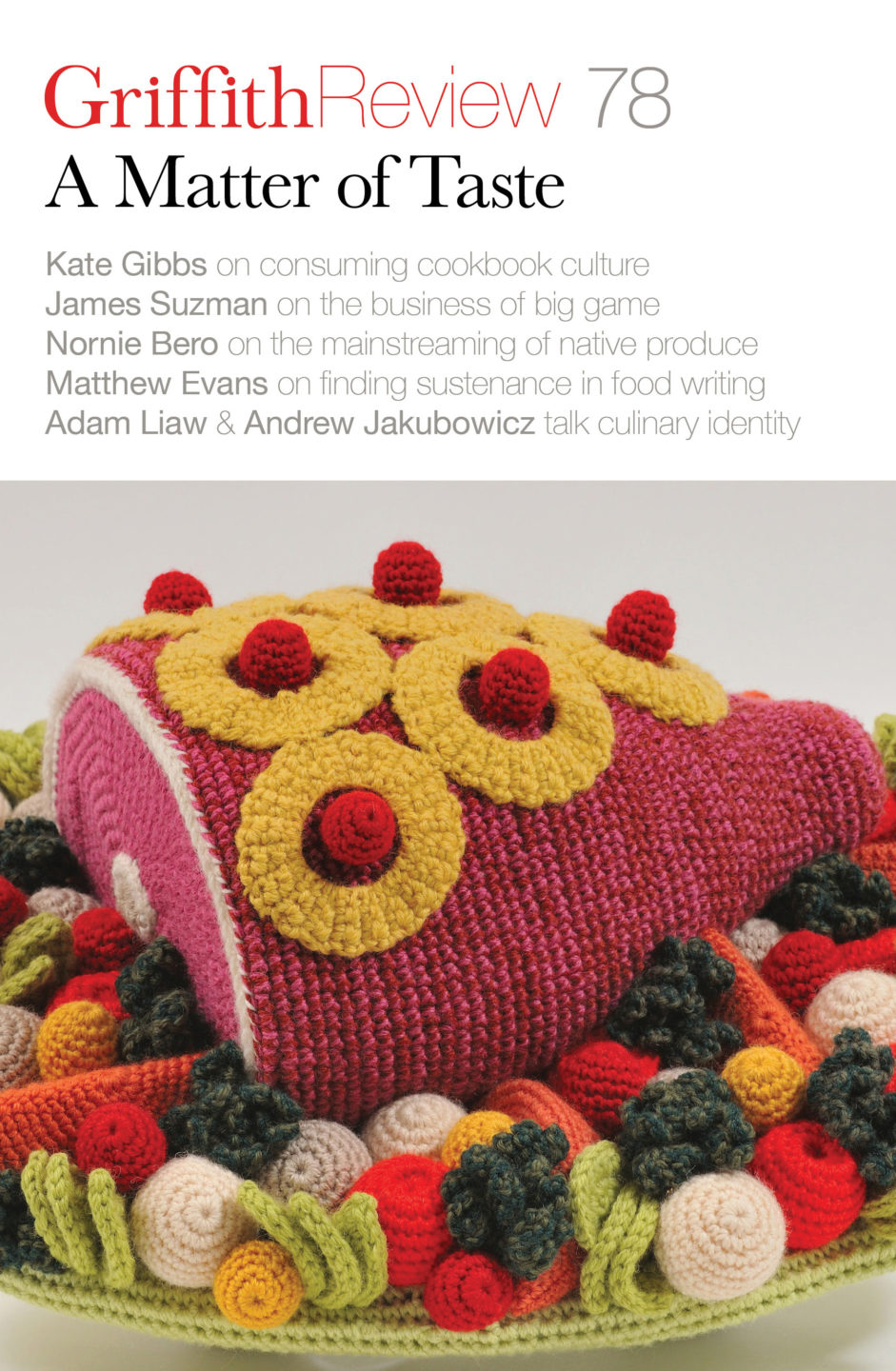Featured in

- Published 20221101
- ISBN: 978-1-922212-74-0
- Extent: 264pp
- Paperback (234 x 153mm), eBook


Already a subscriber? Sign in here
If you are an educator or student wishing to access content for study purposes please contact us at griffithreview@griffith.edu.au
Share article
About the author

Adam Liaw
Adam Liaw is a cook, writer and television presenter. He writes regularly for The Sydney Morning Herald and The Age, goodfood and The Guardian. His...
More from this edition

Flowers and fruit
PoetryThis arrangement like any other, each the simulacrum of before.

Heat and hope and attention
MemoirRules that were once rooted in religion have settled into our insides as secular, self-imposed rules about ‘good’ food and ‘bad’ food and, by extension, ‘good’ bodies and ‘bad’ bodies.

Strong food
EssayThe principal reason Ju/’hoansi didn’t seek to accumulate wealth or surpluses was because they were confident first in the inherent providence of their environment and second in their ability to exploit it – so they were content to focus their energies on meeting only their immediate material needs rather than on creating or controlling surpluses.